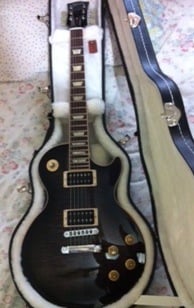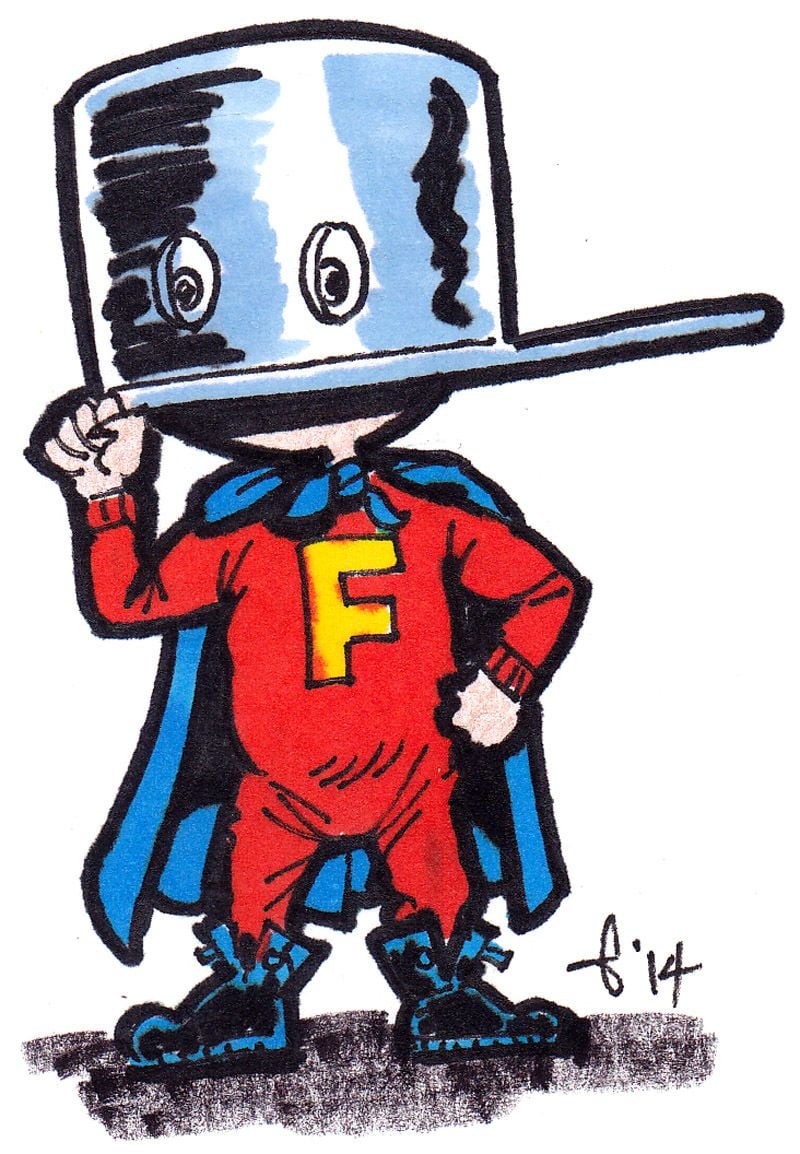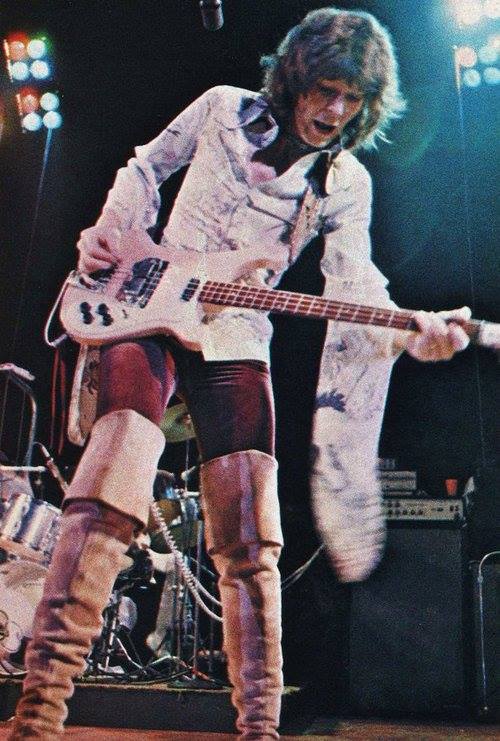/PAlogo_v2.gif) |
|
Post Reply 
|
Page 123> |
| Author | ||
TexasKing 
Forum Senior Member 
Joined: September 21 2016 Location: Netherlands Status: Offline Points: 577 |
 Topic: Is prog rock genre defined by instrumental sounds? Topic: Is prog rock genre defined by instrumental sounds?Posted: December 10 2016 at 07:29 |
|
|
I always doubt is PROG ROCK a genre of a specific style of rock music. If it is a genre it seems to me that is not defined by specific instrumental sounds - what kind of sound a guitar or drums should band members make for something that can be called that genre.
And according to this all bands which made some specific, defined sound that is musically pretty similar basically are lumped into one genre as it is not a case with prog rock where prog rock bands sound so different, esp. when we compare for example bands Yes, Jethro Tull and Rush. For example Steve Howe in Yes produces one kind of guitar sounds, while Alex Lifeson in Rush produces by a mile different sounds than Howe, but both of them are lumped into one same genre. The main question is: Is prog rock as a genre defined by what kind of sound instruments should make? My answer would be: No. Prog rock is not defined by instrumental sounds as genres e.g. BLUES ROCK, HARD ROCK or THRASH METAL. Bands in these three mentioned genres sound basically pretty similar or the same while in PROG ROCK they sound very different. Your opinions?
|
||
 |
||
siLLy puPPy 
Special Collaborator 

PSIKE, JRF/Canterbury, P Metal, Eclectic Joined: October 05 2013 Location: SFcaUsA Status: Offline Points: 14717 |
 Posted: December 10 2016 at 07:40 Posted: December 10 2016 at 07:40 |
|
|
I think that the definition on PA is very clear about this sort of thing as well as this from Wikipedia which more or less delivers a similar descriptive analysis of what exactly prog rock is: Prog is based on fusions of styles, approaches and genres, involving a continuous move between formalism and eclecticism. Due to its historical reception, prog's scope is sometimes limited to a stereotype of long solos, overlong albums, fantasy lyrics, grandiose stage sets and costumes, and an obsessive dedication to technical skill. While the genre is often cited for its merging of high culture and low culture, few artists incorporated literal classical themes in their work to any great degree, and only a handful of groups purposely emulated or referenced classical music. The genre coincided with the new journalistic division between "pop" and "rock" artists that lent generic significance to both terms, as well as an economic boom that allowed record labels to allocate more creative control to their artists. Prog saw a high level of popularity in the mid 1970s, but faded soon after. Conventional wisdom holds that the rise of punk rock caused this, although in reality a number of factors contributed to the decline.[6] Music critics, who often labelled the concepts as "pretentious" and the sounds as "pompous" and "overblown", tended to be hostile towards the genre or to completely ignore it.[7] After the late 1970s, progressive rock fragmented in numerous forms; some bands achieved commercial success well into the 1980s, albeit with changed lineups and more compact song structures, and some crossed into symphonic pop, arena rock, or new wave. Proto-prog is the advanced music that slightly predates the full-fledged prog era. In 1967, "progressive rock" constituted a diversity of loosely associated style codes. The Canterbury scene, originating in the late 1960s, denoted a subset of prog bands who emphasised the use of wind instruments, complex chord changes and long improvisations. Rock in Opposition, from the late 1970s, was more avant-garde, and when combined with the Canterbury style, created avant-prog. In the 1980s, a new subgenre, neo-progressive rock, enjoyed some commercial success, although it was also accused of being derivative and lacking in innovation. Post-progressive draws upon newer developments in popular music and the avant-garde since the mid 1970s. |
||
 |
||
TexasKing 
Forum Senior Member 
Joined: September 21 2016 Location: Netherlands Status: Offline Points: 577 |
 Posted: December 10 2016 at 08:11 Posted: December 10 2016 at 08:11 |
|
I can't get the answer on my question from this Wikipedia long desciprtion. It says a lot, but not the essence. And it doesn't emphasize the big musical difference between prog bands.
|
||
 |
||
siLLy puPPy 
Special Collaborator 

PSIKE, JRF/Canterbury, P Metal, Eclectic Joined: October 05 2013 Location: SFcaUsA Status: Offline Points: 14717 |
 Posted: December 10 2016 at 08:28 Posted: December 10 2016 at 08:28 |
|
|
It makes sense to me. Prog rock is NOT defined by any particular instruments or instrumental sounds but rather by composition, scope and subject matter that is employed. Since prog is a form of rock, then it is by definition mostly a guitar, bass, drum and keyboard type of music that does serve as the stereotype but there are plenty of example to the contrary. If you want a quick short answer, then NO

|
||
 |
||
2dogs 
Forum Senior Member 

Joined: December 03 2011 Location: England Status: Offline Points: 705 |
 Posted: December 10 2016 at 09:46 Posted: December 10 2016 at 09:46 |
|
Agreed, the prog rock philosophy is to develop, experiment and add more variety rather than stick to tight rules.
|
||
|
"There is nothing new except what has been forgotten" - Marie Antoinette
|
||
 |
||
SteveG 
Forum Senior Member 

Joined: April 11 2014 Location: Kyiv In Spirit Status: Offline Points: 20474 |
 Posted: December 10 2016 at 09:58 Posted: December 10 2016 at 09:58 |
|
|
Yes, and these sounds are produced by instruments called synthesizers and Mellotrons. Unless you like Tool, in which this rule no longer applies. Edited by SteveG - December 12 2016 at 04:07 |
||
 |
||
mechanicalflattery 
Forum Senior Member 

Joined: August 08 2016 Location: Seattle Status: Offline Points: 1056 |
 Posted: December 10 2016 at 10:13 Posted: December 10 2016 at 10:13 |
|
|
I think this is about the point where someone links to one of those "prog vs progressive" threads that crop up every once in a while. In short, prog is as much of a genre, with its defined sounds, instruments, and cliches, as any other. Progressive is what people pretend prog rock is to feel intelligent about their musical tastes

|
||
 |
||
zravkapt 
Special Collaborator 

Honorary Collaborator Joined: October 12 2010 Location: Canada Status: Offline Points: 6446 |
 Posted: December 10 2016 at 10:25 Posted: December 10 2016 at 10:25 |
|
|
To me there are three main types of prog fan:
1) Those that think it's all about Mellotrons and MiniMoogs and don't consider a lot of the music on PA as 'prog' 2) Those who interpret "progressive rock" literally and think most experimental rock is 'prog' 3) Those who like Rush, Floyd, Zappa, etc. but have no idea what 'prog' is I think group 3 is the largest. So, to answer the OP...it depends on the listener and what their definition of 'prog' is. |
||
|
Magma America Great Make Again
|
||
 |
||
TexasKing 
Forum Senior Member 
Joined: September 21 2016 Location: Netherlands Status: Offline Points: 577 |
 Posted: December 10 2016 at 11:08 Posted: December 10 2016 at 11:08 |
|
|
The Rush album 2112 is totally guitar-driven with the absence of any kind of keyboards but it's labeled as prog rock.
|
||
 |
||
Magnum Vaeltaja 
Special Collaborator 

Honorary Collaborator Joined: July 01 2015 Location: Out East Status: Offline Points: 6777 |
 Posted: December 10 2016 at 11:13 Posted: December 10 2016 at 11:13 |
|
1. Listen to the first three seconds of the album. Keyboards. 2. Prog =/= has keyboards. 3. 2112 is considered prog because of the extended compositional scale of the piece. It's a 20+ minute multi-section epic with a dystopian sci-fi plot line. Even if all the licks and riffs therein are based on the pentatonic scale, it's considered prog because it's far more elaborate than your typical verse-chorus-verse-chorus-bridge-solo-chorus structure that is typical of rock music.
|
||
|
when i was a kid a doller was worth ten dollers - now a doller couldnt even buy you fifty cents
|
||
 |
||
Manuel 
Forum Senior Member 

Joined: March 09 2007 Location: United States Status: Offline Points: 12352 |
 Posted: December 10 2016 at 11:21 Posted: December 10 2016 at 11:21 |
|
I completely agree with you. |
||
 |
||
TexasKing 
Forum Senior Member 
Joined: September 21 2016 Location: Netherlands Status: Offline Points: 577 |
 Posted: December 10 2016 at 11:50 Posted: December 10 2016 at 11:50 |
|
But according to Lifeson's guitar sound through the whole song it's hard rock to my ears.
|
||
 |
||
HackettFan 
Forum Senior Member 

Joined: June 20 2012 Location: Oklahoma Status: Offline Points: 7946 |
 Posted: December 10 2016 at 13:38 Posted: December 10 2016 at 13:38 |
|
|
The only stylistic ground that Progressive Rock stakes out is the Rock element. However, the Rock element is sometimes a product of the guitar contribution. Other times it's completely reliant on the drumming style (e.g. Univers Zero), while other Prog drummers may be exceedingly Jazzy (I'm thinking specifically of Gilgamesh - Another Fine Tune You've Got Me Into). So, no. It's not characterized by instruments or style of playing instruments.
Edited by HackettFan - December 10 2016 at 13:39 |
||
|
A curse upon the heads of those who seek their fortunes in a lie. The truth is always waiting when there's nothing left to try. - Colin Henson, Jade Warrior (Now)
|
||
 |
||
Dean 
Special Collaborator 

Retired Admin and Amateur Layabout Joined: May 13 2007 Location: Europe Status: Offline Points: 37575 |
 Posted: December 10 2016 at 14:24 Posted: December 10 2016 at 14:24 |
|
|
Of course it is... just not the same one every time.
|
||
|
What?
|
||
 |
||
hellogoodbye 
Forum Senior Member 

VIP member Joined: August 29 2011 Location: Troy Status: Offline Points: 7251 |
 Posted: December 10 2016 at 15:10 Posted: December 10 2016 at 15:10 |
|
|
In 1979 Prog Rock changed its name and was called New Wave.
|
||
 |
||
Mascodagama 
Collaborator 

Honorary Collaborator Joined: December 30 2006 Location: United Kingdom Status: Offline Points: 5111 |
 Posted: December 10 2016 at 15:24 Posted: December 10 2016 at 15:24 |
|
|
The sound of Prog Rock is the sound of a Mellotron stamping on a human face - forever.
|
||
 |
||
Thatfabulousalien 
Forum Senior Member 

Joined: October 27 2016 Location: Aussie/NZ Status: Offline Points: 1409 |
 Posted: December 10 2016 at 16:01 Posted: December 10 2016 at 16:01 |
|
|
The way I see it it's either one of these three:
#1 - Progressive rock and "experimental rock" are the same thing #2 - Prog rock is defined by the sound of the 'classic prog bands', therefore is a style or #3 - It's another meaningless sub-genre title that has no real accurate definition
|
||
|
Classical music isn't dead, it's more alive than it's ever been. It's just not on MTV.
https://www.soundcloud.com/user-322914325 |
||
 |
||
HackettFan 
Forum Senior Member 

Joined: June 20 2012 Location: Oklahoma Status: Offline Points: 7946 |
 Posted: December 10 2016 at 18:14 Posted: December 10 2016 at 18:14 |
|


|
||
|
A curse upon the heads of those who seek their fortunes in a lie. The truth is always waiting when there's nothing left to try. - Colin Henson, Jade Warrior (Now)
|
||
 |
||
Rick5A 
Forum Newbie 
Joined: December 03 2016 Location: Virginia Beach Status: Offline Points: 35 |
 Posted: December 10 2016 at 19:25 Posted: December 10 2016 at 19:25 |
|
|
I don't know. I don't worry about labels too much. I just listen to see if I like it or not. Duke Ellington said there are only two kinds of music. That works for me.
|
||
 |
||
cstack3 
Forum Senior Member 

VIP Member Joined: July 20 2009 Location: Tucson, AZ USA Status: Offline Points: 6744 |
 Posted: December 10 2016 at 19:27 Posted: December 10 2016 at 19:27 |
|
...and a Les Paul played through a fuzz tone, forever.... |
||
 |
||
Post Reply 
|
Page 123> |
| Forum Jump | Forum Permissions  You cannot post new topics in this forum You cannot reply to topics in this forum You cannot delete your posts in this forum You cannot edit your posts in this forum You cannot create polls in this forum You cannot vote in polls in this forum |